Our MBA Initiated a Summer Themed Exchange Program to the University of Cambridge
From August 19 to 27, 2023, faculty and students from the MBA program of the Business School at Central University of Finance and Economics went to the University of Cambridge in the UK to engage in the Cambridge Summer Academic Program (CSAP) for CUFE. The themed exchange program is an important part of the CUFE MBA program's internationalization strategy. This themed exchange was led by Professor Sun Luping from the Business School and Teacher Zeng Gongxing, a counselor from the MBA Education Center. Over the nine-day visit, the delegation's activities were centered on academic lectures and exchanges, complemented by corporate visits and local cultural exploration. The objective is to widen the MBA students' global horizons, reinforce their professional knowledge, improve their communication abilities, and allow them to comprehend the behavior of consumers and the differences in corporate management and operations in various cultural settings through immersive learning experiences.
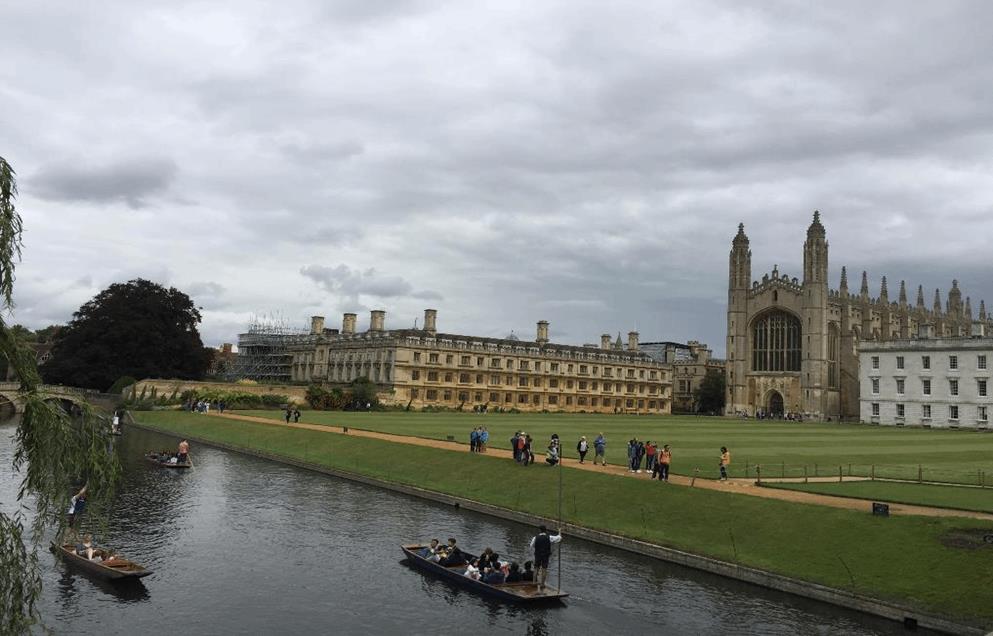
The University of Cambridge, situated in Cambridge, England, is a top-tier public research university. It was ranked 2nd in the 2024 QS Global University Rankings, 4th in the 2023 ARWU Global University Academic Rankings, and 8th in the 2023 US News Global University Rankings. Founded in 1209, the University of Cambridge boasts a rich history and has produced numerous renowned figures across various fields. These include scientific luminaries such as Newton, Hawking, Darwin, Turing, and Hua Luogeng, literary and philosophical masters like Byron, Bacon, and Wittgenstein, political figures such as Cromwell, Nehru, and Lee Kuan Yew, and 15 British Prime Ministers, including Robert Walpole, who all attended the University of Cambridge. Unlike institutions of higher education in China, the University of Cambridge operates under a dual system of teaching departments and colleges, which consists of a total of 31 colleges. The lectures for the summer academic program were given by distinguished professors from the Judge Business School at the University of Cambridge. The faculty and students of the delegation were housed at St Catharine's College, University of Cambridge, which is next to King's College. St Catharine's College has been around for over 500 years.
Part 1 Studying at Cambridge
The summer academic program included four academic lectures, all presented by distinguished professors from the Judge Business School at the University of Cambridge. Professor Shahzad (Shaz) Ansari, a scholar in the field of strategy and innovation, conducted two academic lectures on "From Industries to Ecosystems" and "Creating Winning Business Models." Professor Jochen Runde, a scholar in economics and organization, gave an academic lecture on "Thinking about the Unknown.” Professor Nektarios (Aris) Oraiopoulos, a scholar in operations management, presented an academic lecture on "Data Driven Decision Making."
During the lecture "From Industries to Ecosystems," Professor Ansari from the Judge Business School used the example of Michelin tires to demonstrate the shortcomings of Porter's Five Forces model. He stressed the significance of complementary businesses and the competitive-cooperative relationship with businesses in other industries for the success of an enterprise. He also used the example of Xiaomi, a Chinese company, to explain the operation model of a business ecosystem. The students had in-depth discussions with Professor Ansari about the business ecosystem of Chinese businesses.
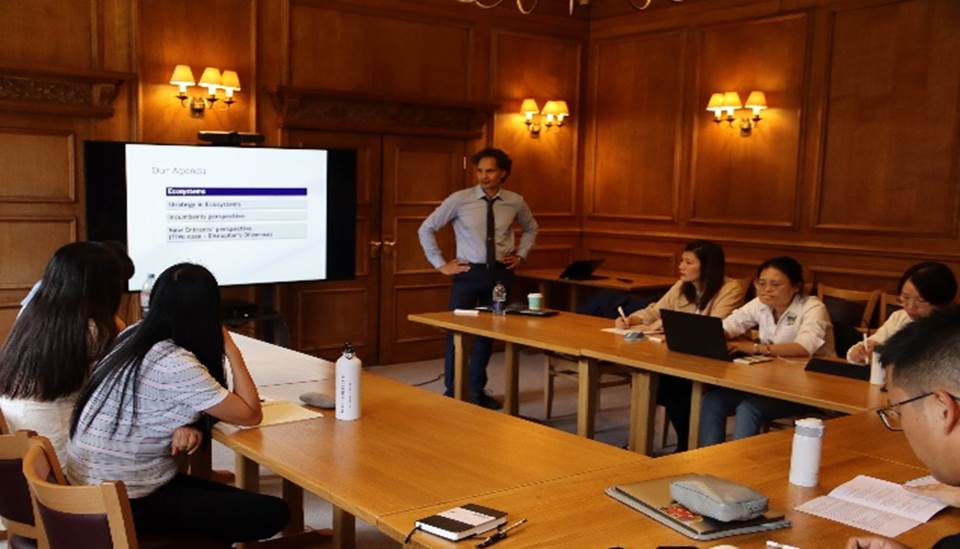
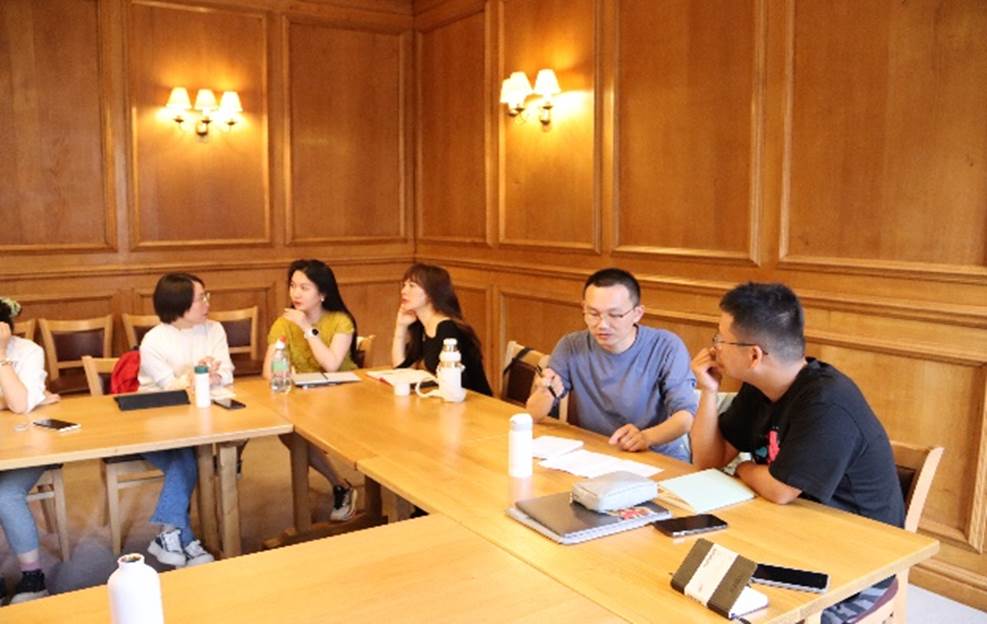
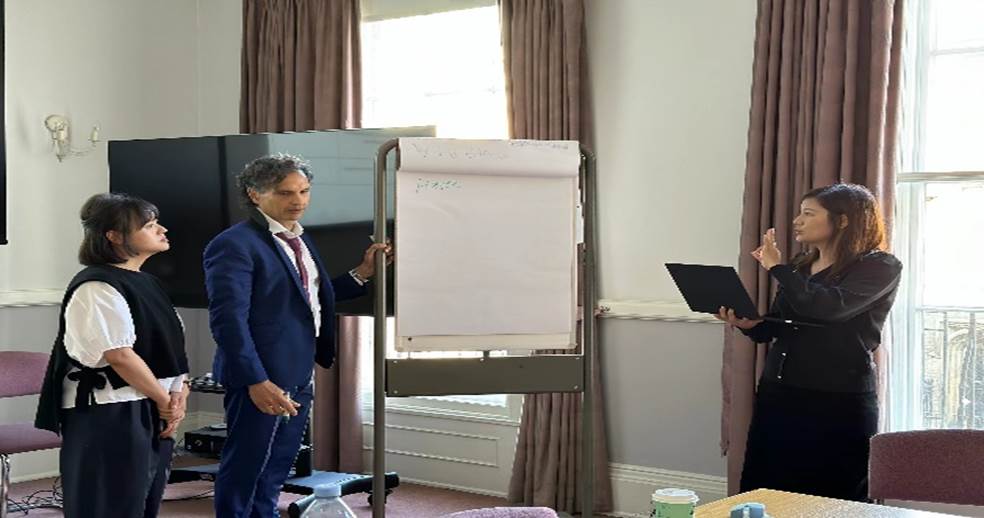
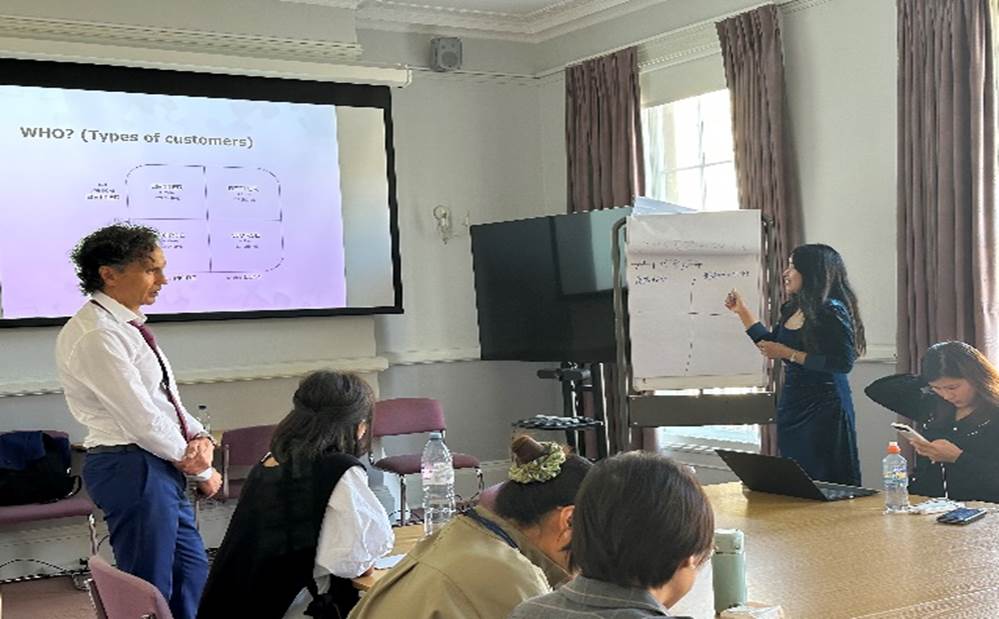
During the lecture "Creating Winning Business Models," Professor Ansari presented various business models such as Direct-to-Consumer (D2C), Razor and Blade, Franchising, and Subscription, using case studies from both Chinese and international companies. He provided a detailed explanation of the operating mechanisms and success factors of four categories of business models: product, solution, matching, and multi-sided markets. He guided the students to apply their knowledge by discussing their own company's business model in groups and designing and proposing improvement plans.
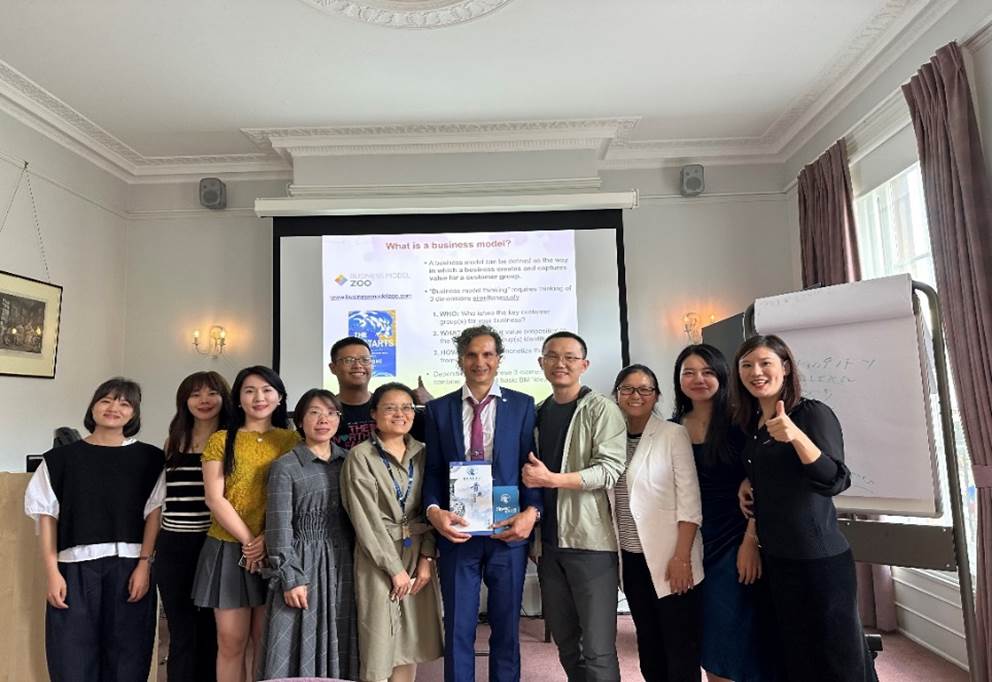
Professor Jochen Runde from the Judge Business School presented an academic lecture on "Thinking about the Unknown," where he used a case study to differentiate between risk and uncertainty and their significant impact on business decisions. He guided the students to explore common decision-making biases in the field of behavioral economics and their potential positive or negative effects on business and life decisions. Professor Runde also shared methods and suggestions for breaking out of cognitive frameworks and dealing with uncertainty when making business decisions.
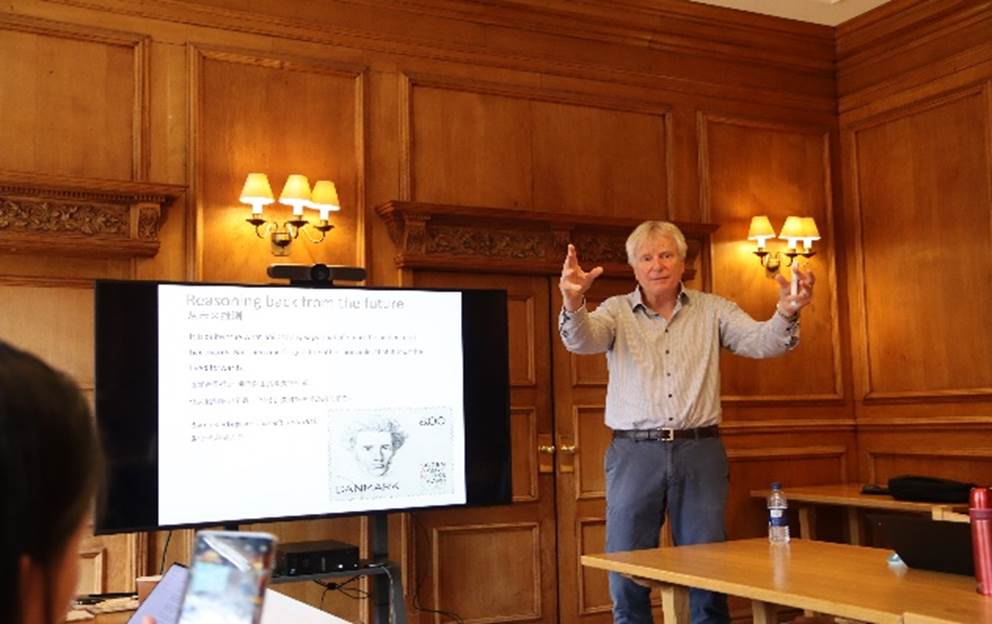
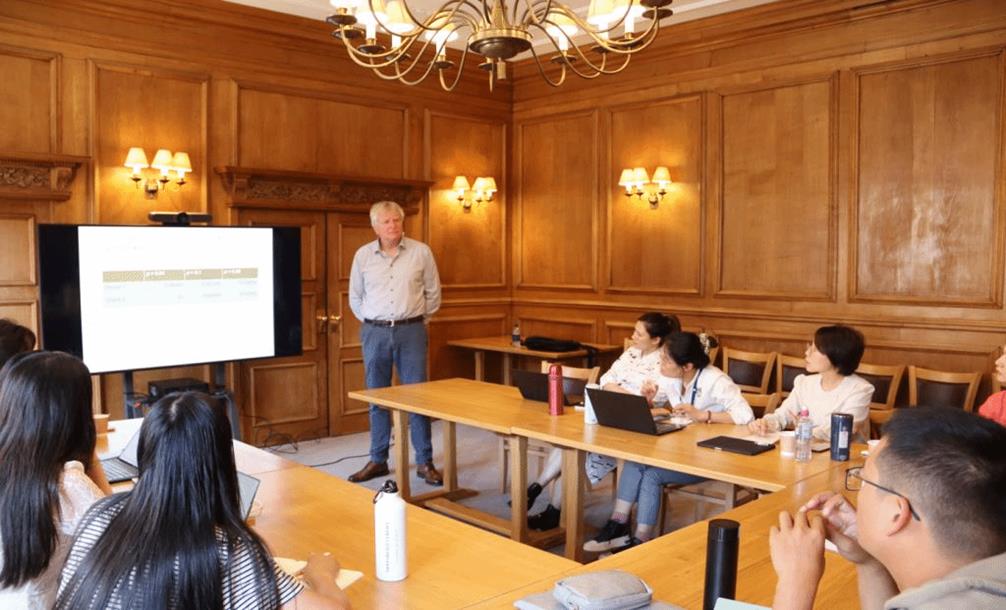
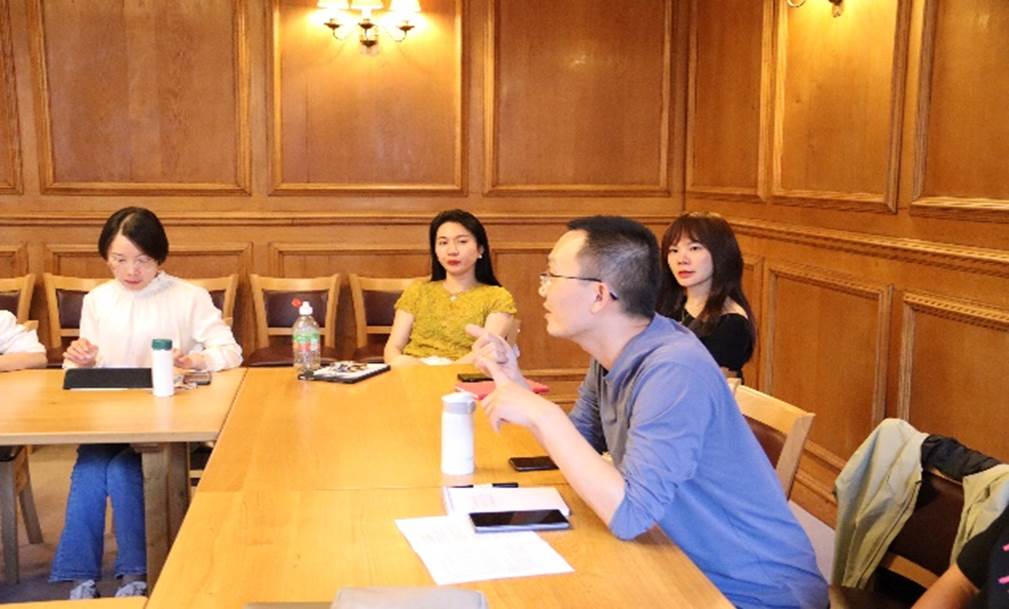
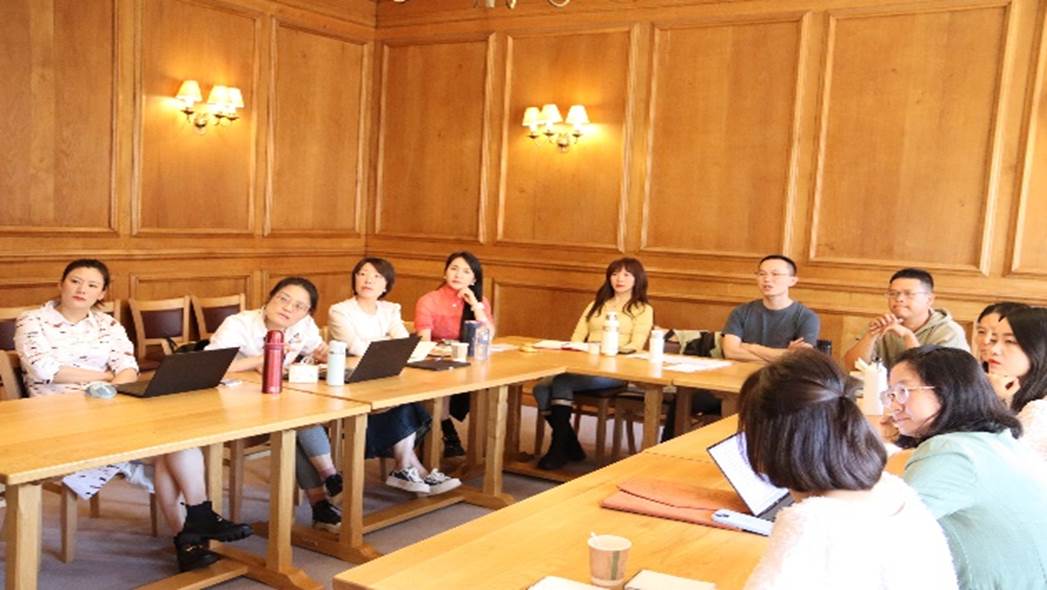
Professor Nektarios (Aris) Oraiopoulos from the Judge Business School presented an academic lecture on "Data Driven Decision Making," where he used a graph to visually demonstrate the relationship between advertising expenditure and company profits. He guided the students to reflect on the connection between the two and the potential misleading effects on decision-making. He then explained the design methods of random experiments and their importance for making scientific business decisions. Using Uber as an example, he led the students to think about how to design customer incentive or reward plans to increase customer loyalty in service failure scenarios. The students engaged in a lively discussion and had interactive and in-depth exchanges with Professor Oraiopoulos.
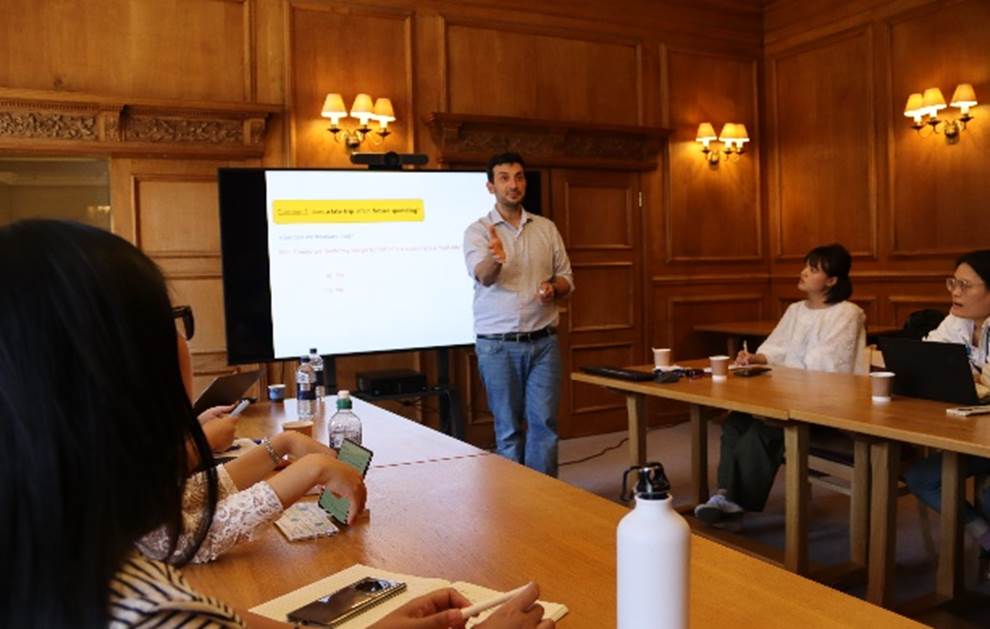
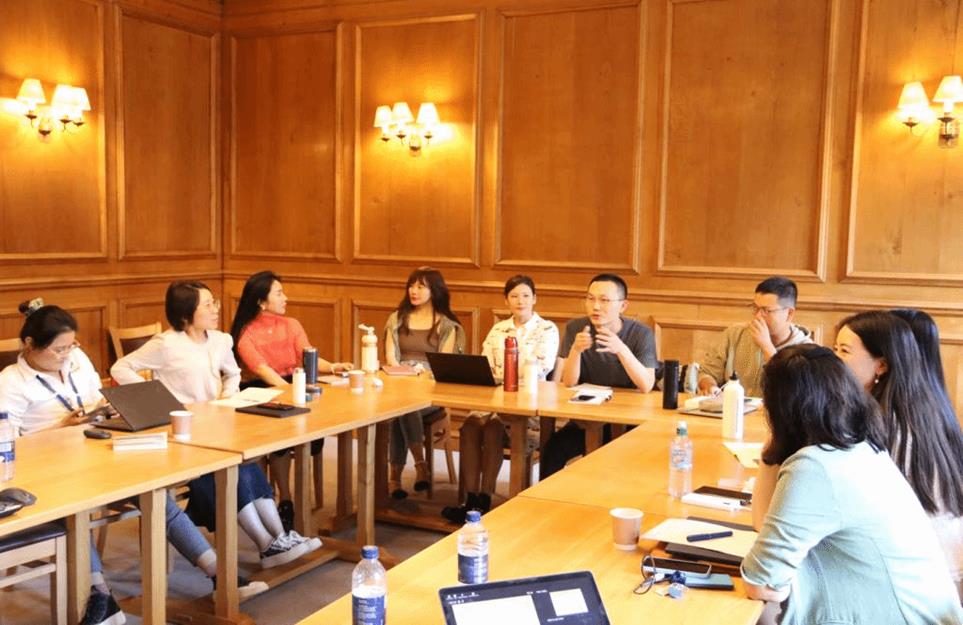
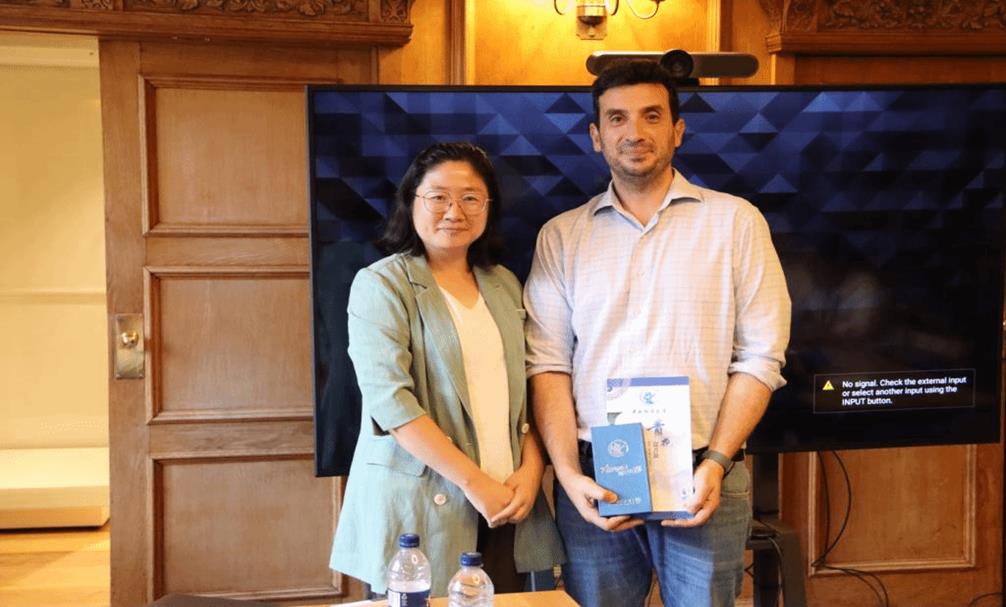
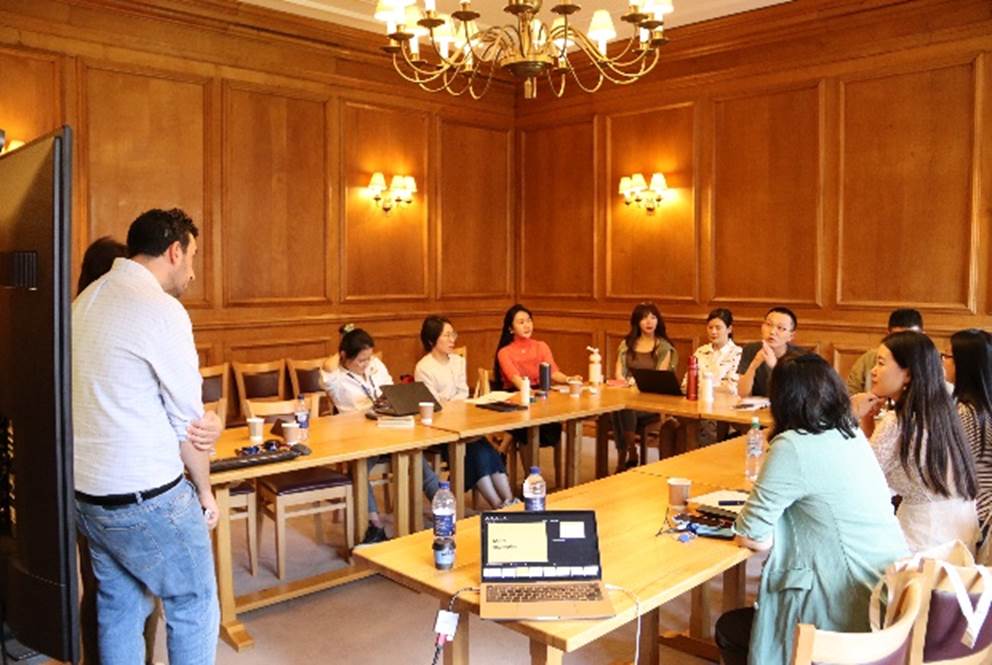
Throughout the intensive learning sessions spanning several days, the students not only gained professional knowledge, but also built relationships with professors from the University of Cambridge and engaged in in-depth discussions about the operations of various industries. The experience was highly enriching. During the academic lectures, the accompanying teachers also had extensive exchanges with the professors from the Judge Business School, focusing on international cooperation projects for MBA students, academic research, and the differences in management practices between Chinese and British enterprises. Both parties expressed their intention to pursue more opportunities for deeper collaboration in the future.
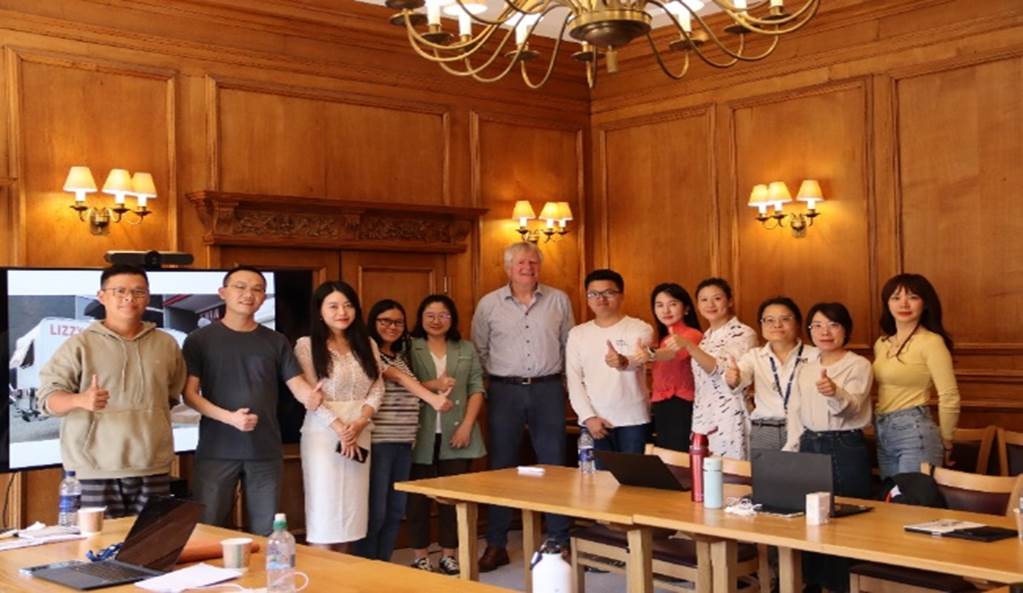
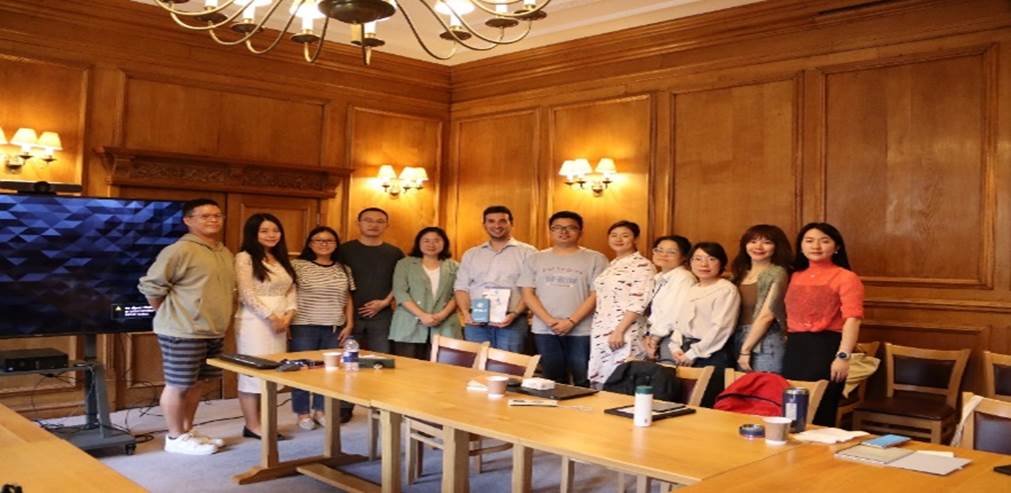
Part 2: Corporate Visits
Beyond acquiring professional knowledge and experiencing academic enrichment, the summer academic program also focused on enhancing the MBA students' global outlook in management. To this end, the students were organized to visit two British companies, Cambridge Enterprise and Canada Water Group.
Cambridge Enterprise is a division of the University of Cambridge, dedicated to commercializing the university's research findings to create social and economic value. Its core business activities include technology transfer services, consulting services, and innovation investment services. Over the past few years, it has supported over 2,500 research findings from the University of Cambridge, with patented results applied in over 300 areas. Through technology transfer and consulting services, it has generated revenue exceeding £13 million. The entrepreneurship center currently has over 100 employees, who are specialists in different areas. They can share their experiences and expertise with various organizations and individuals globally. They also act as international advisors, working with different organizations worldwide to share their experiences and innovations, which is of great importance.
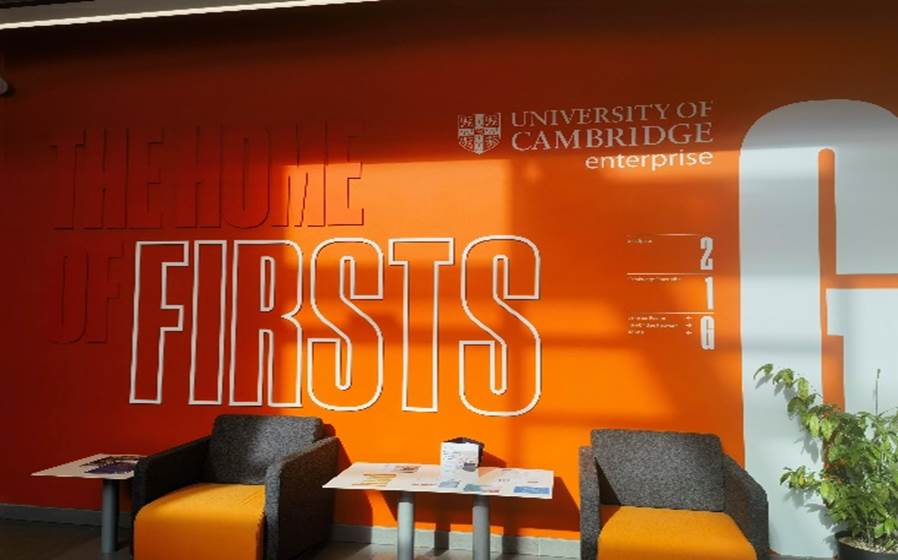
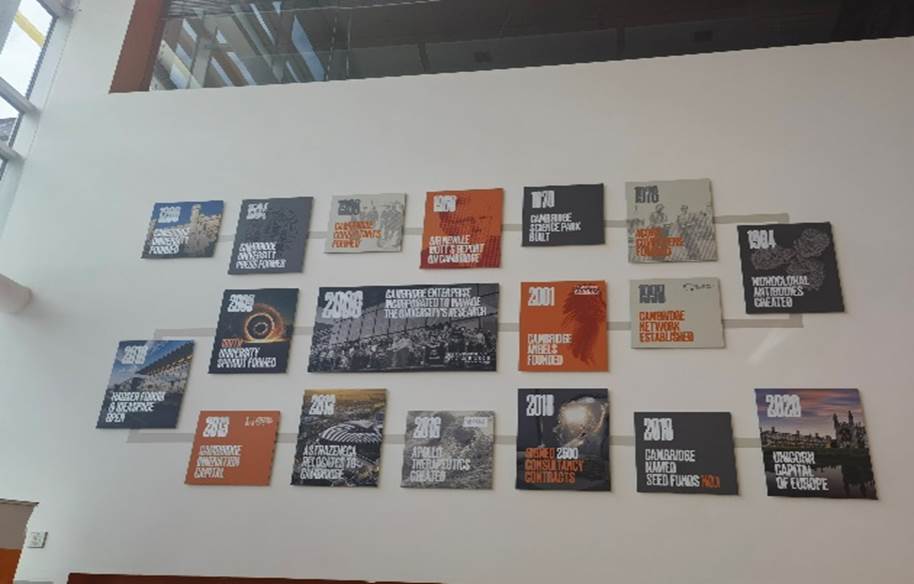
During the visit, Brian Corbett, a researcher in the International Expansion Program at Cambridge Enterprise and a mentor for the i-Teams innovation program at the University of Cambridge, introduced the main business operations of Cambridge Enterprise, the achievements in technology commercialization in recent years, and the commercial ecosystem and operating model established around the University of Cambridge. Alex Smith, a researcher in the International Expansion Program at Cambridge Enterprise and the founder of Cambridge Funding Solutions, shared the operations of Cambridge Science Park, its development history and new models in the incubator and accelerator fields. As a result of this visit, the students developed a comprehensive and in-depth understanding of the differences between Chinese and Western business incubation models. Entrepreneurial students engaged in in-depth discussions with Cambridge Enterprise about potential collaboration opportunities based on their industry backgrounds, leading to effective exchange outcomes.
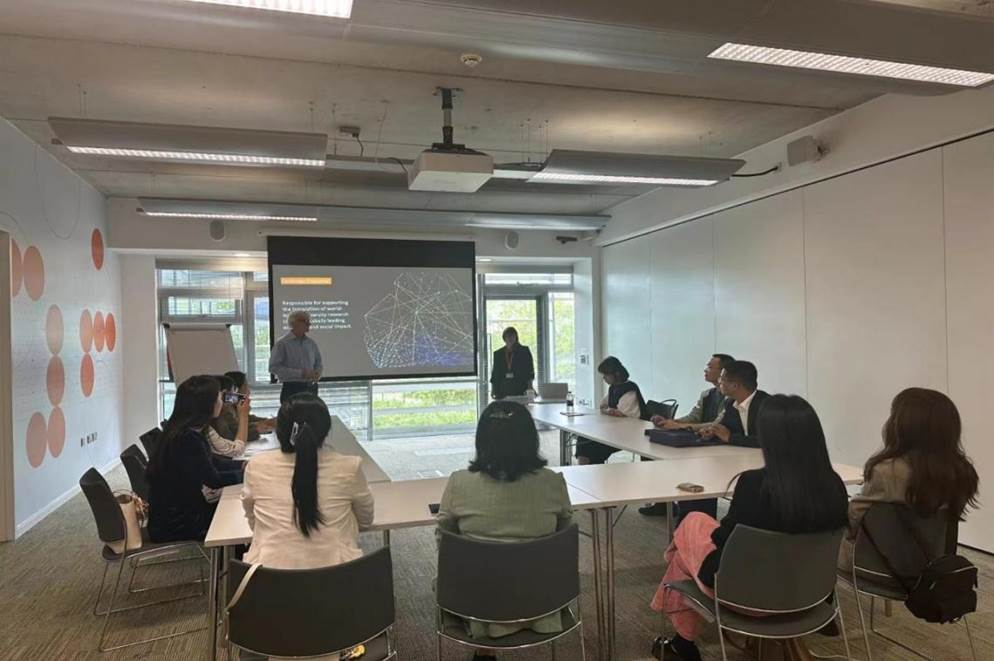
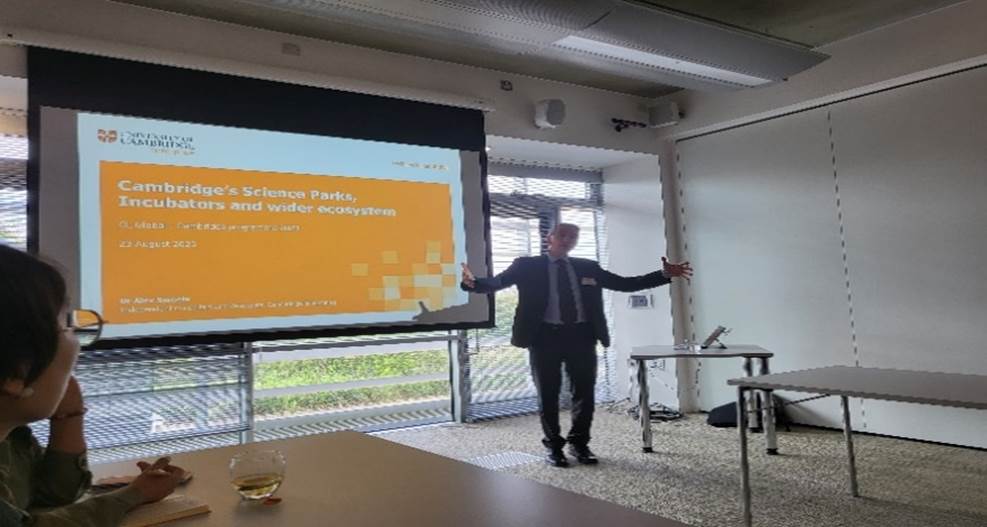
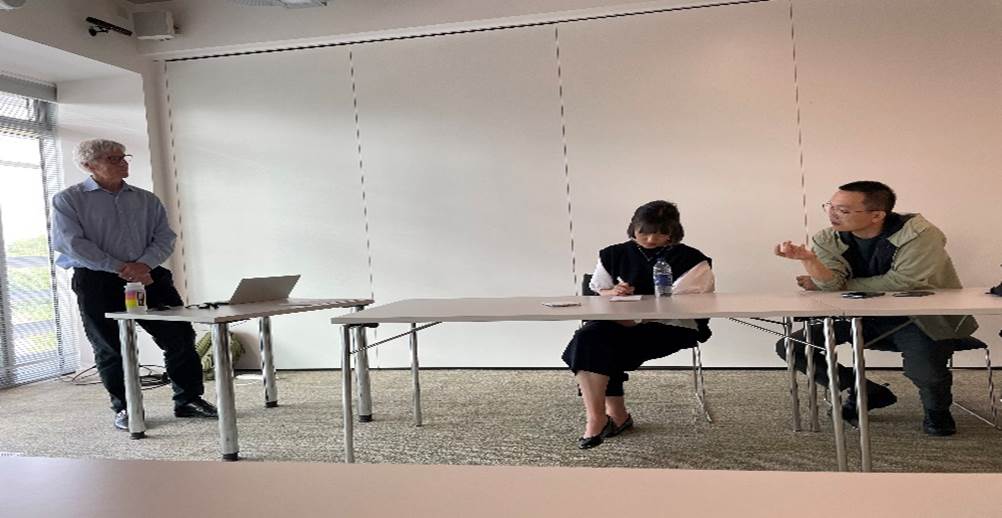
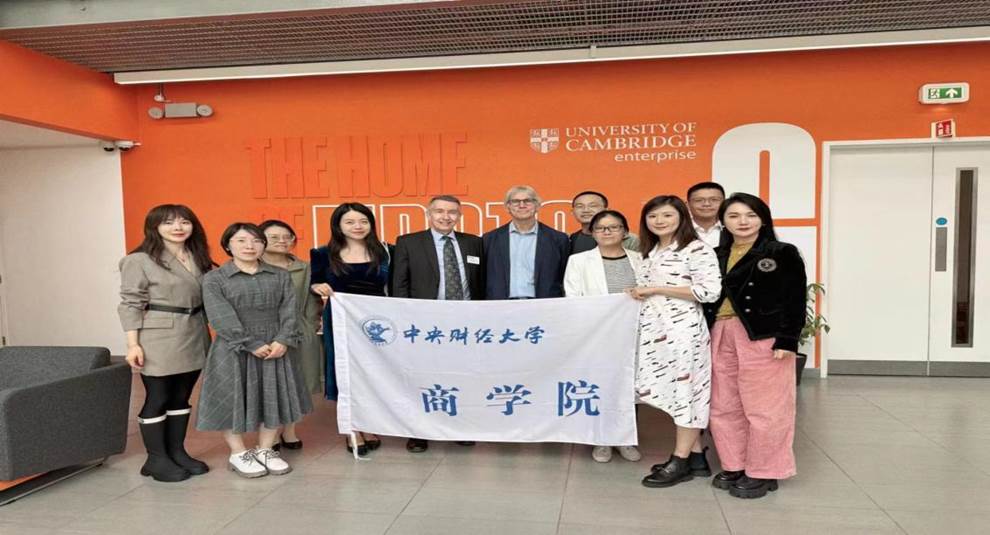
The second company visit of the summer academic program was to Canada Water Group, a leading British real estate company that is part of British Lands. The visit was to the Canada Water project in southeast London, which the group is currently working on redeveloping. This dockyard area covers 53 acres, and the Group aims to create a new central area that includes residential areas, commercial streets, higher education institutions, sports centers, and leisure and entertainment facilities. The development director, Philip Tate, the sustainability director Hannah Farrah, and the marketing director, Alexandra McLane, respectively introduced the development history, future plans, and current construction and project operation status of the Canada Water area to the students. Through this company visit, the students gained a deeper understanding of London's urban planning concepts, the application of sustainable energy in urban construction, and the operation and marketing of such commercial projects.
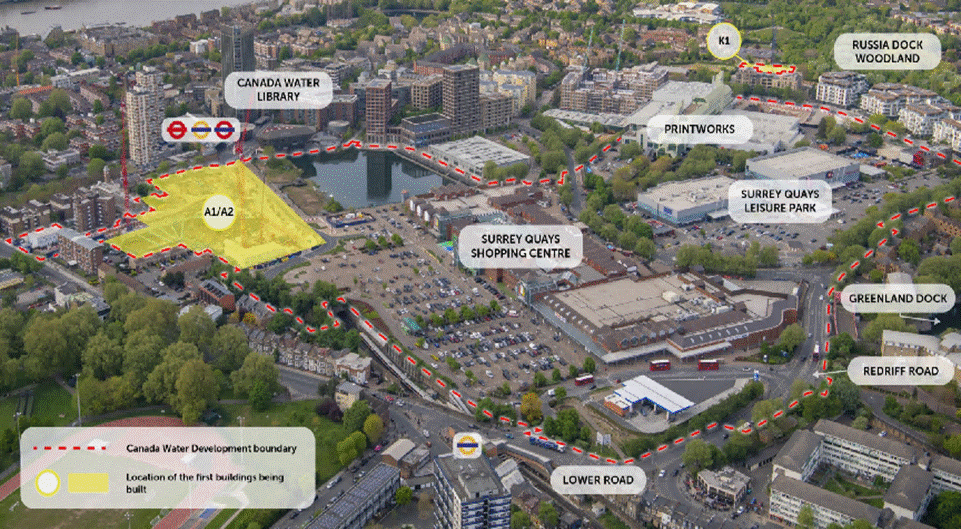
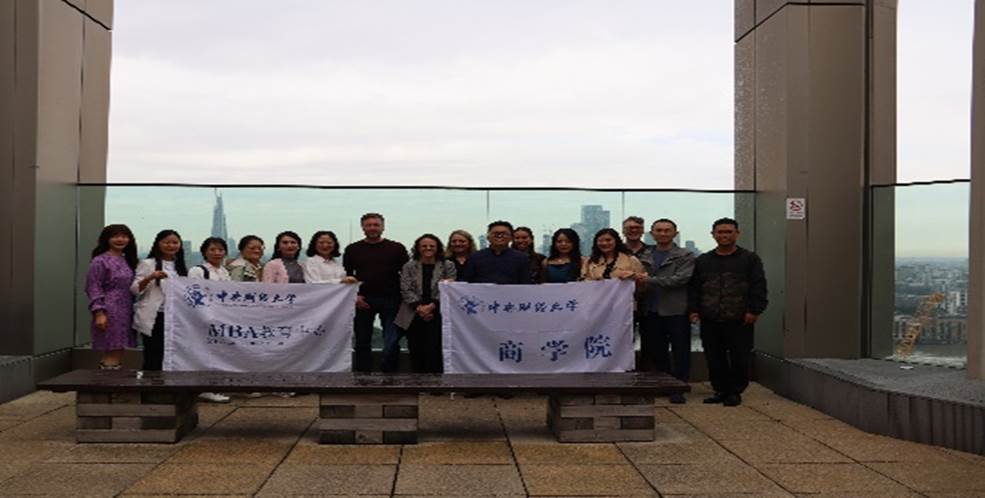
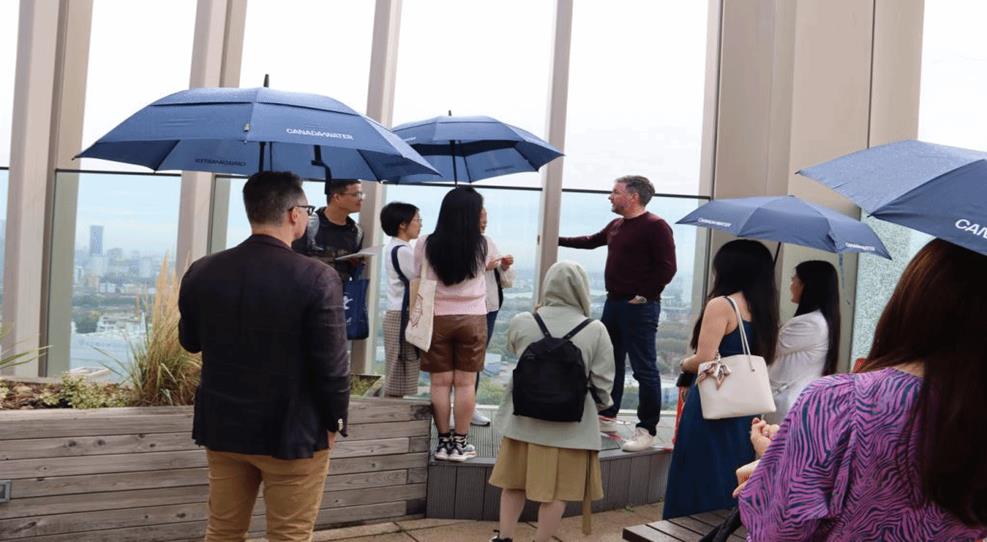
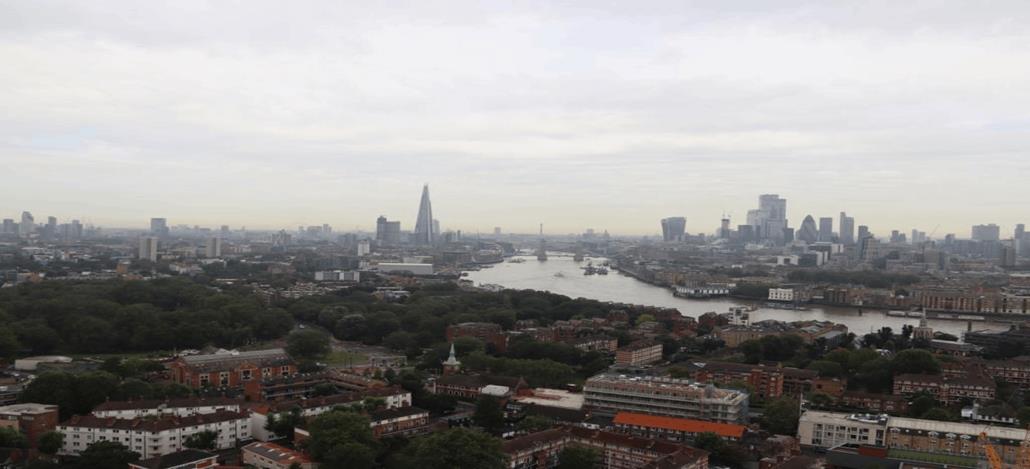
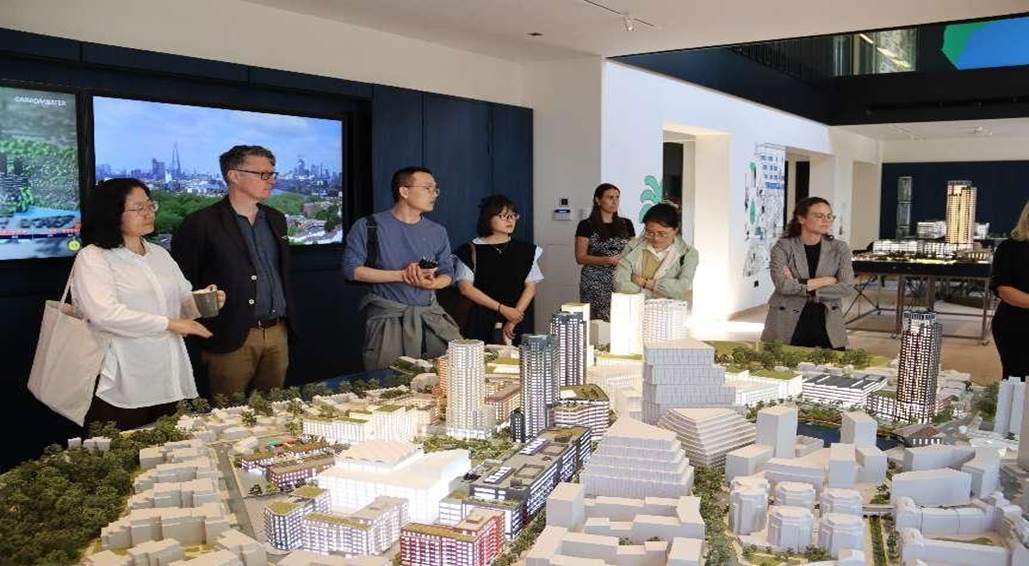
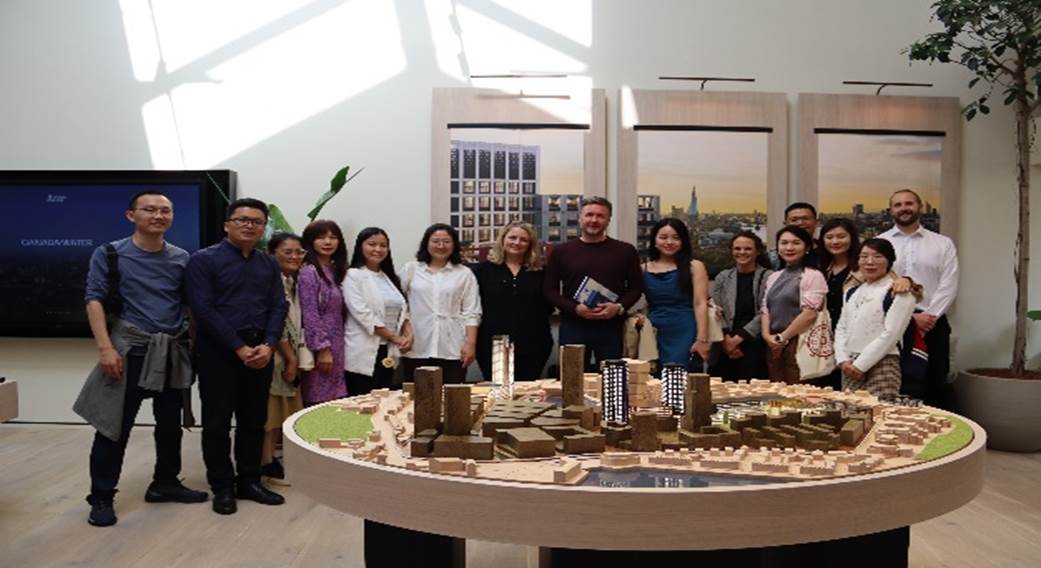
Part 3 Campus Experience and Cultural Exploration
Besides the intensive learning and company visits, the summer academic program also provided the MBA students with a chance to experience life and cross-cultural communication at the world-class university. The faculty and students of the delegation resided in the student dormitories of St Catharine's College, University of Cambridge, and dined in the college dining hall. They experienced the campus life and humanistic charm of the University of Cambridge firsthand. They also participated in the famous Cambridge Punting on the River Cam and the traditional Cambridge Formal Dinner. In their leisure time, the students went jogging and walking in the beautiful campus and along the River Cam, exploring the campus with a history of over a thousand years and the unique college buildings.
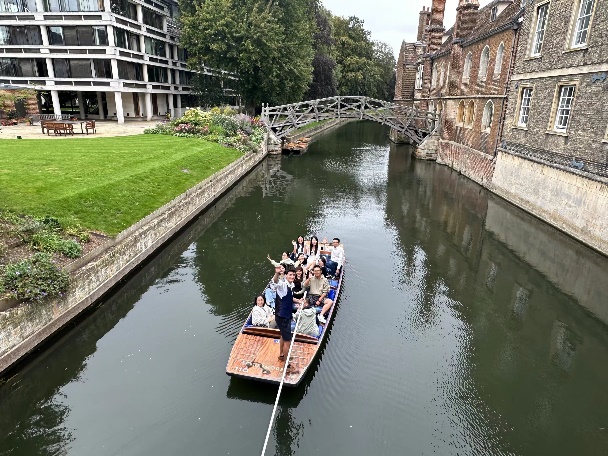
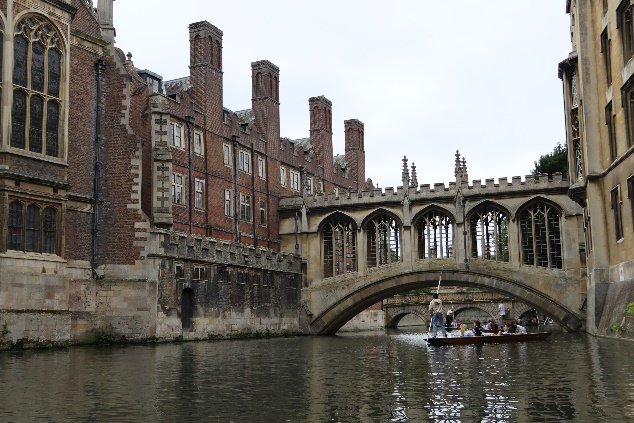
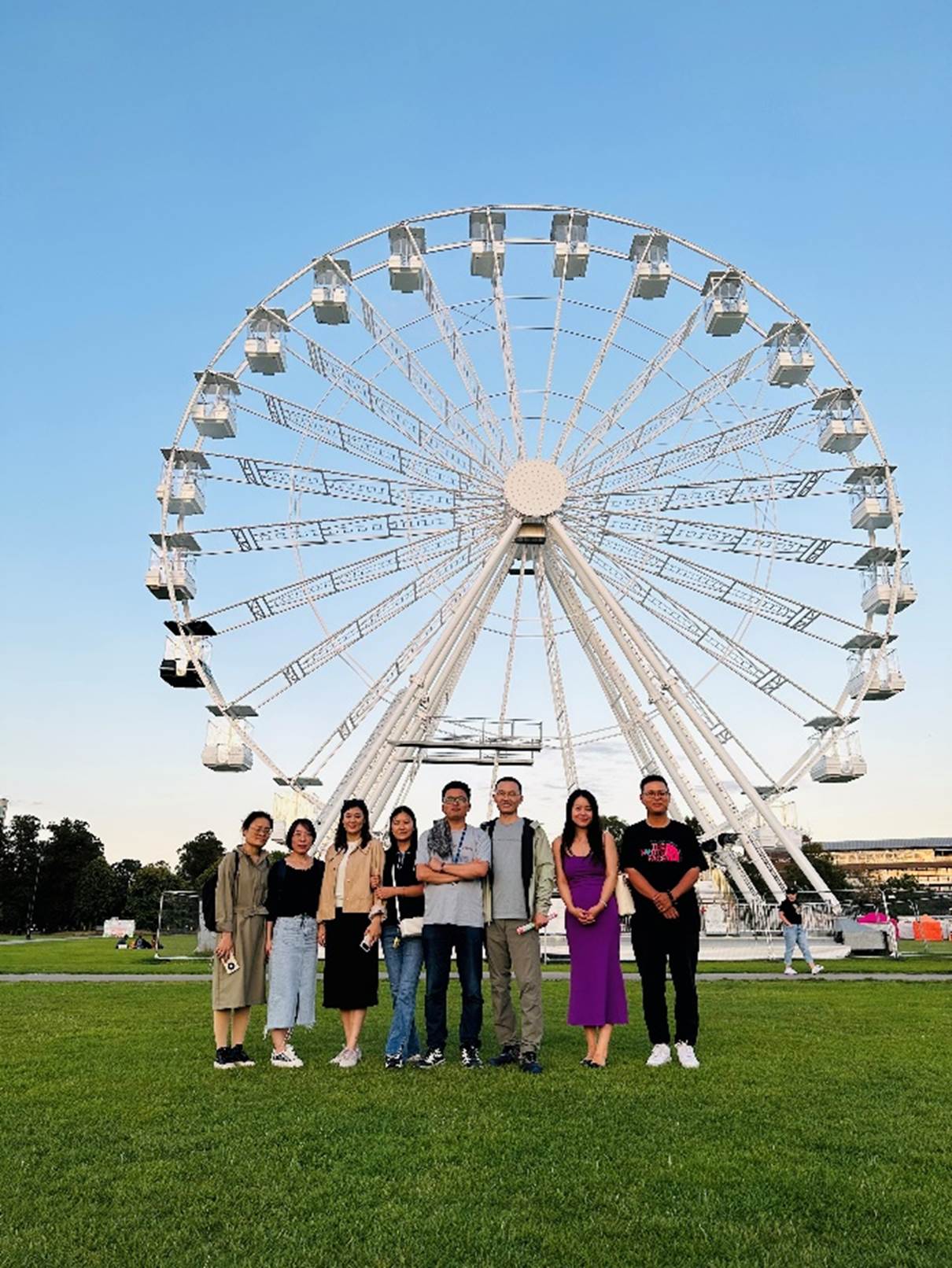
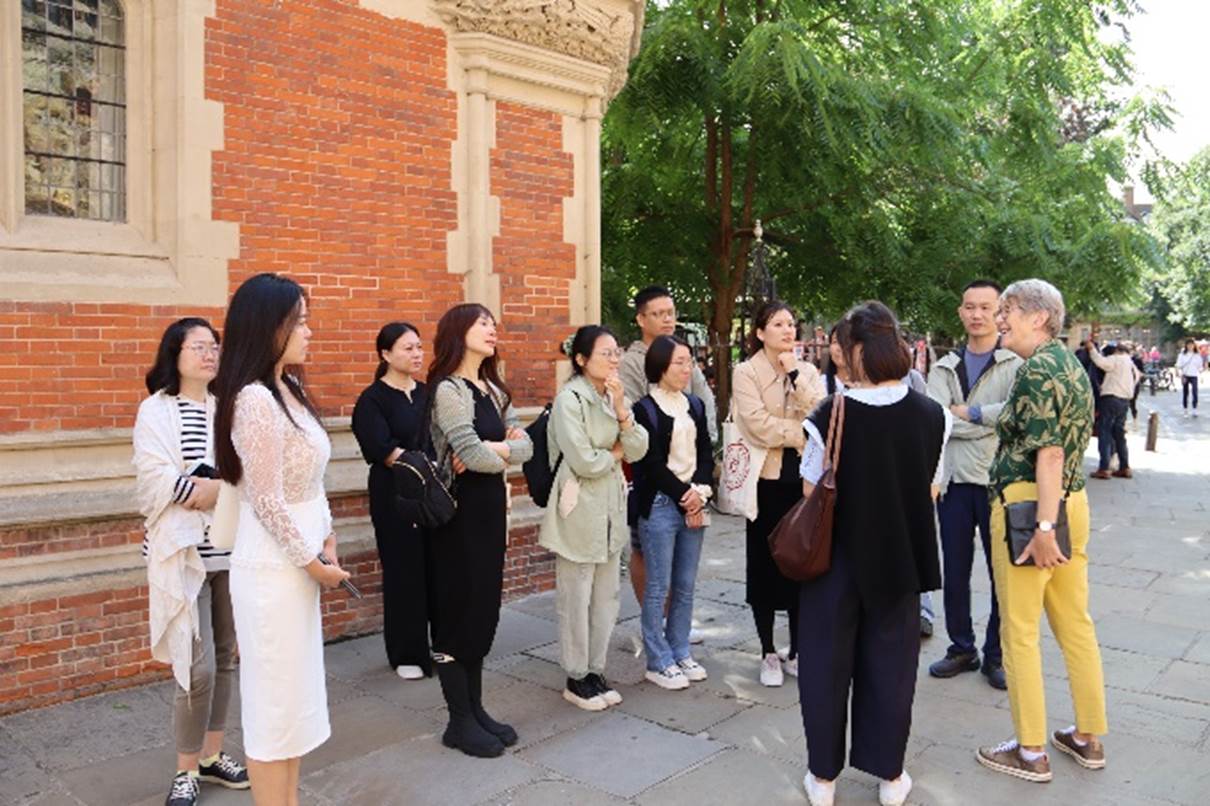
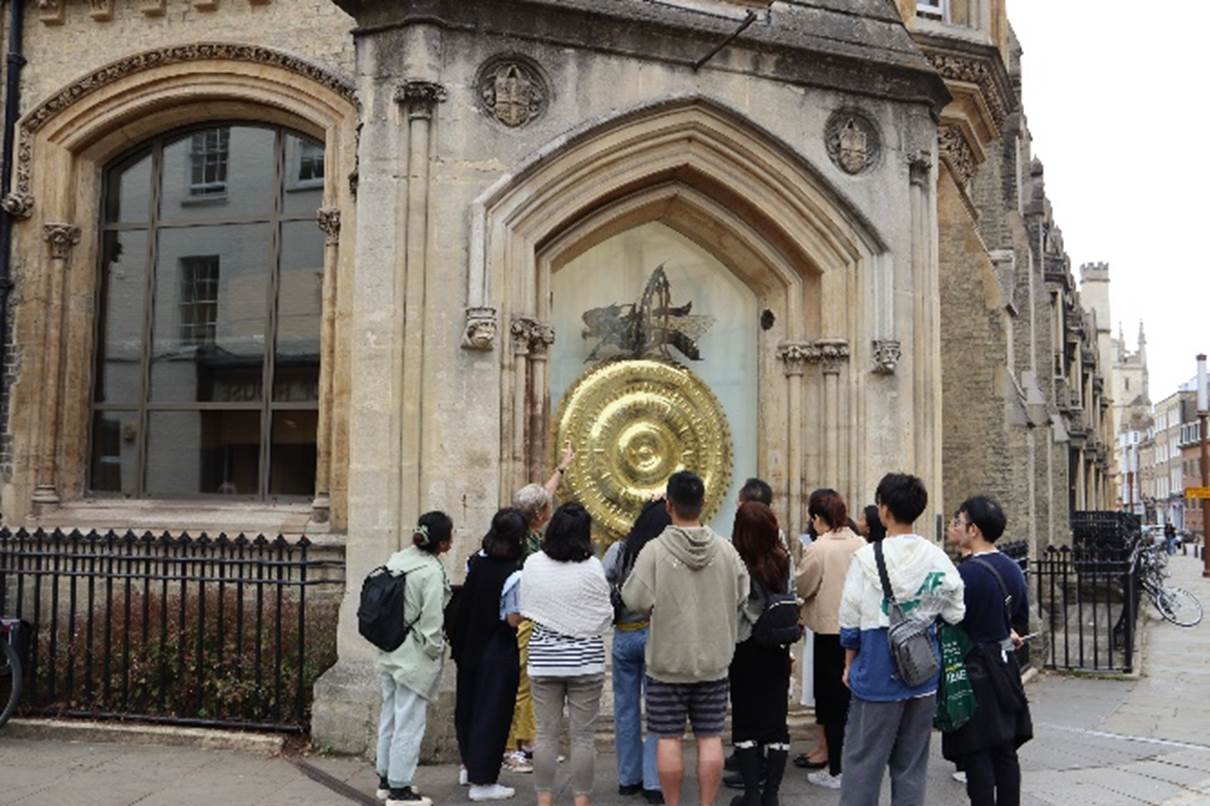
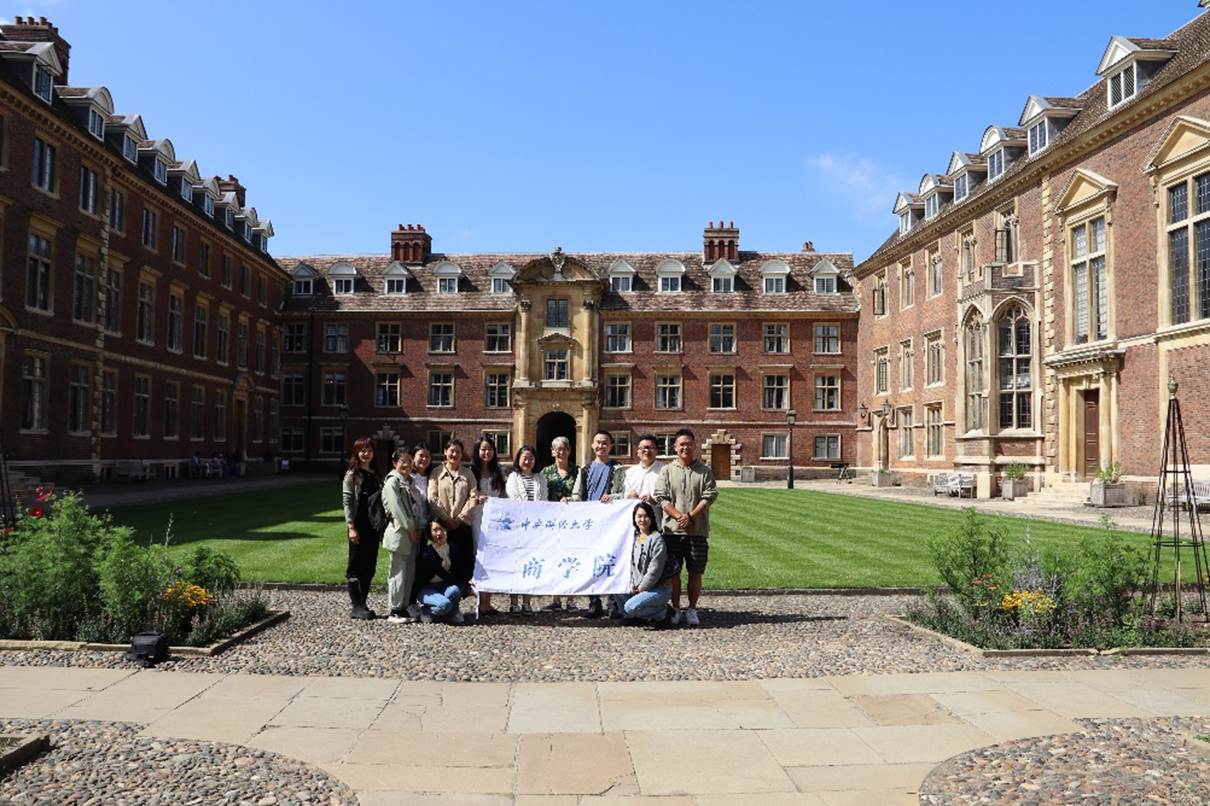
As a finale to the summer academic program, the faculty and students of the delegation also visited London for cultural exploration. They visited landmarks such as Big Ben, Buckingham Palace, and Tower Bridge, experiencing the unique charm of a foreign country. They also felt the harmonious integration of natural landscapes and urban architecture along the Thames River, as well as the humanistic care and inclusiveness of London as a global metropolis. These experiences will be unforgettable and valuable memories for the students.
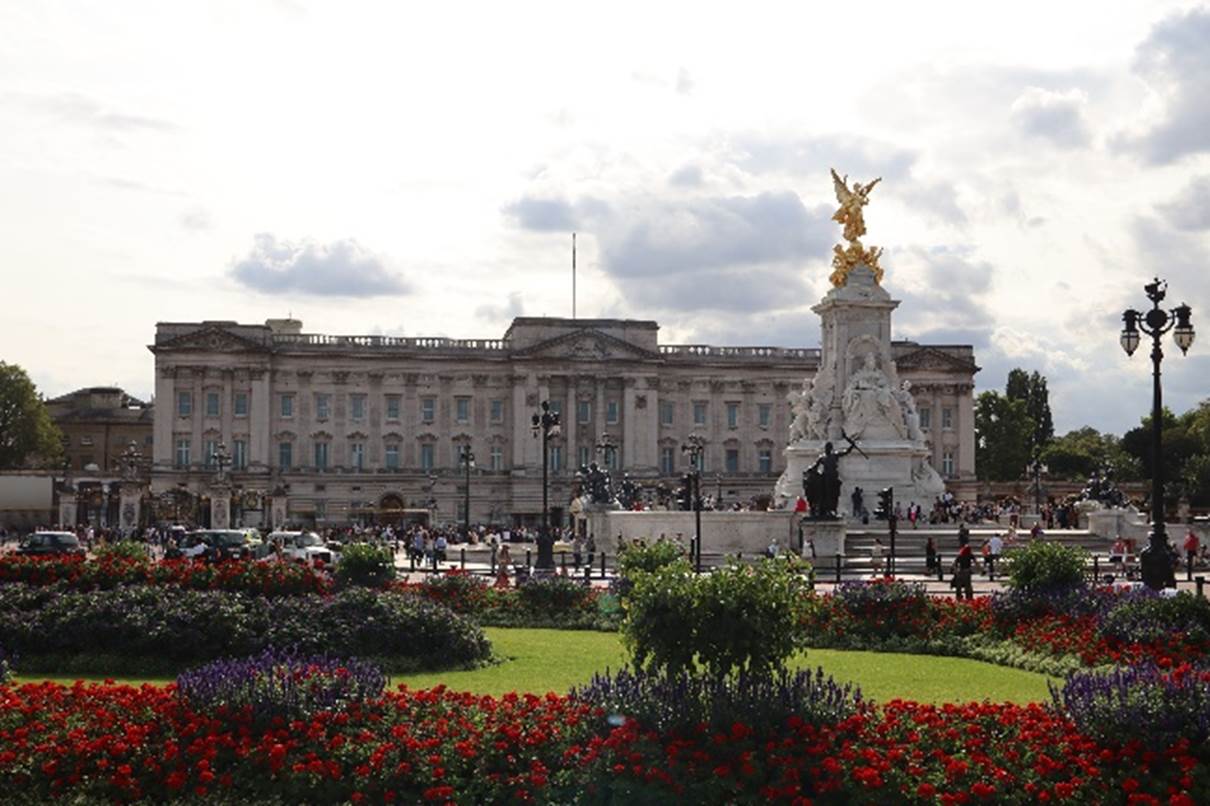
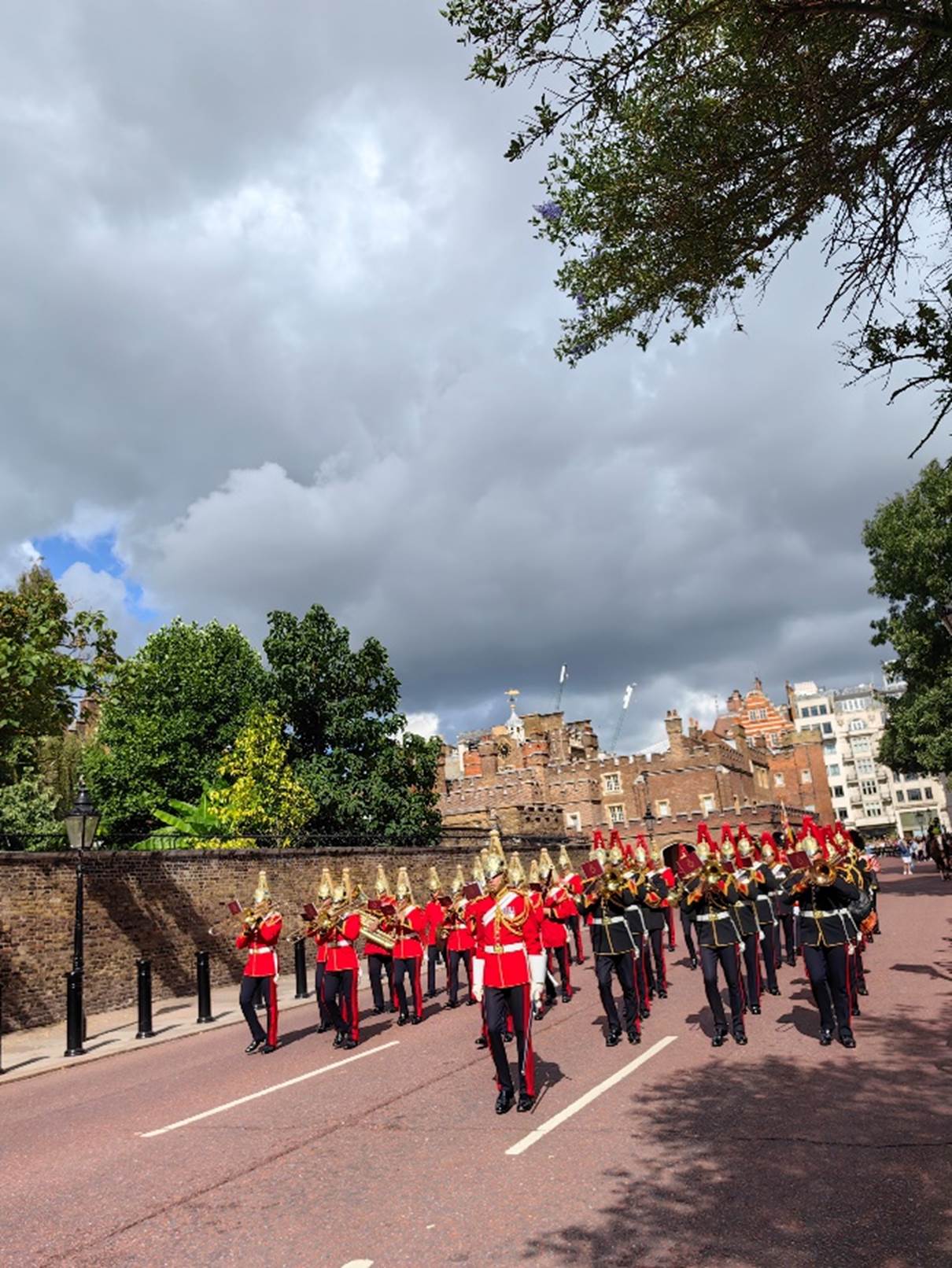
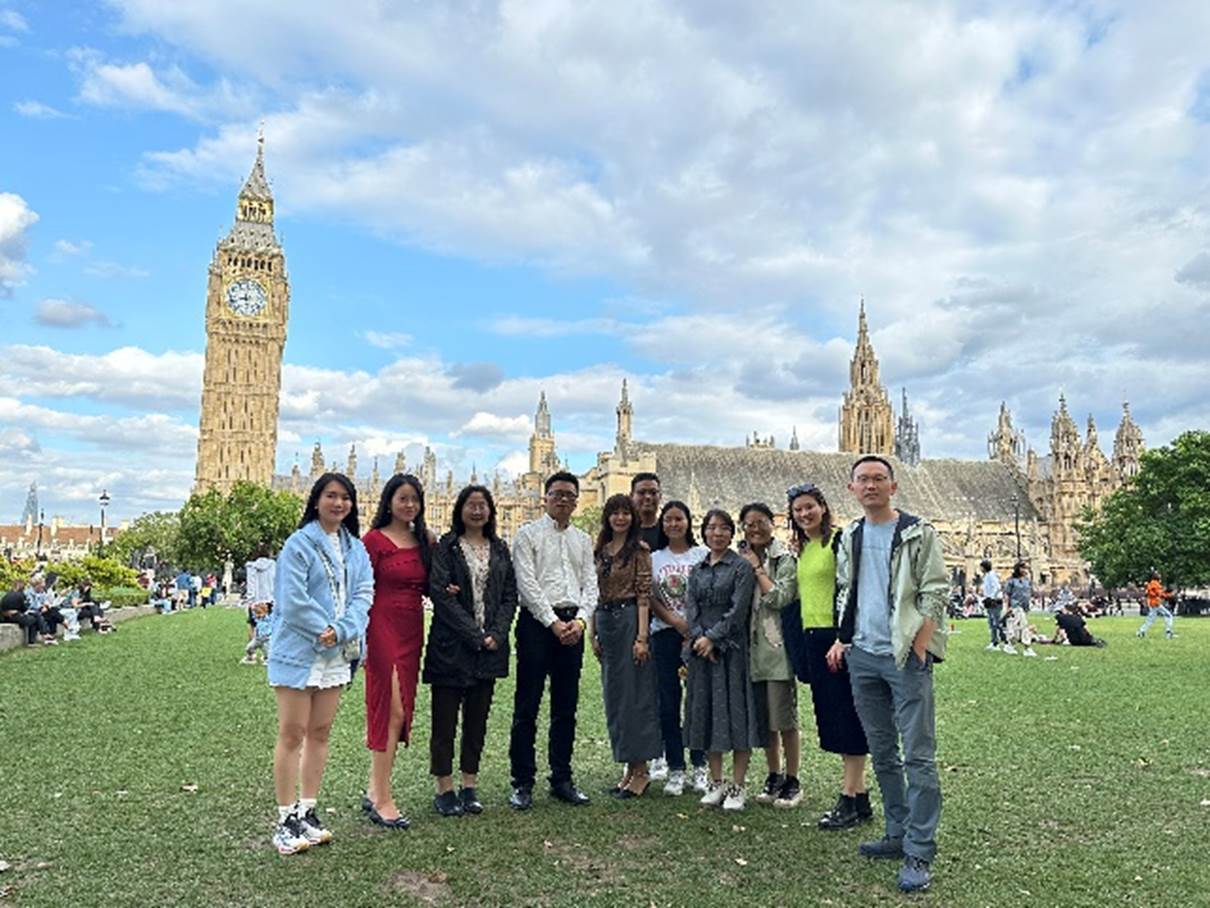
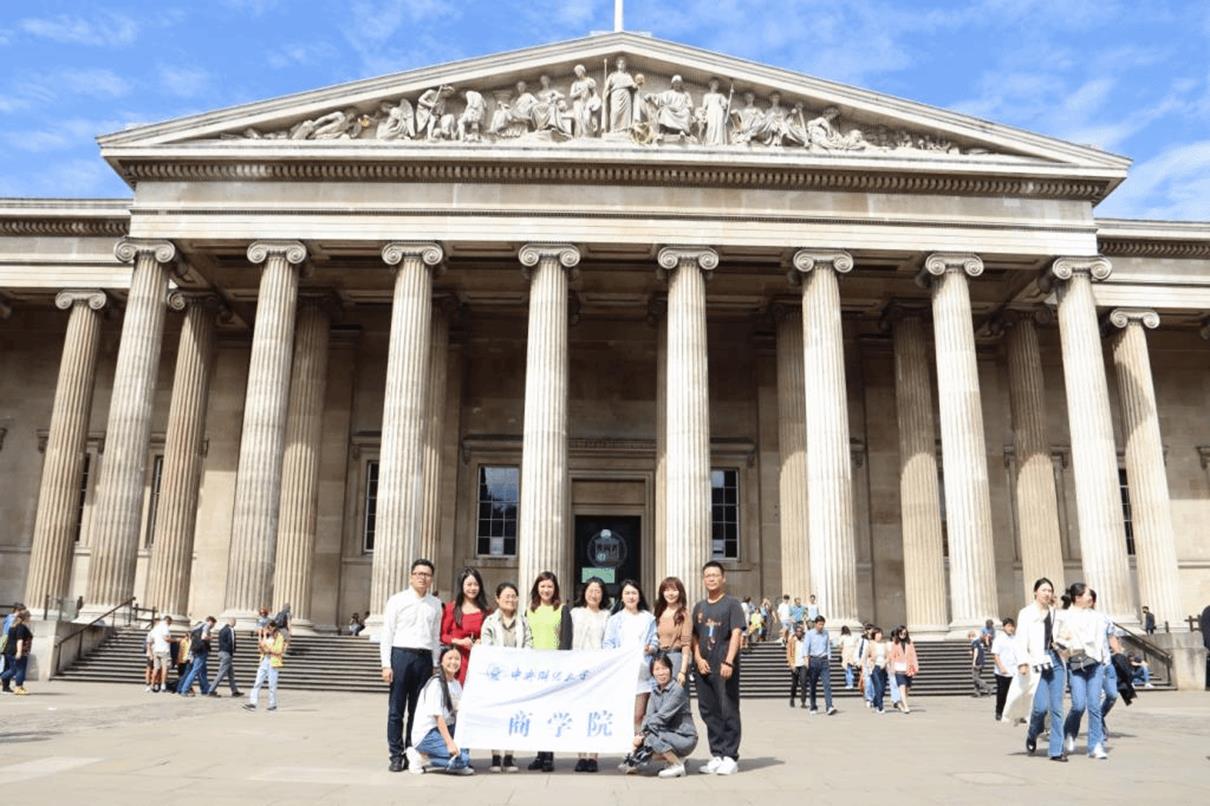
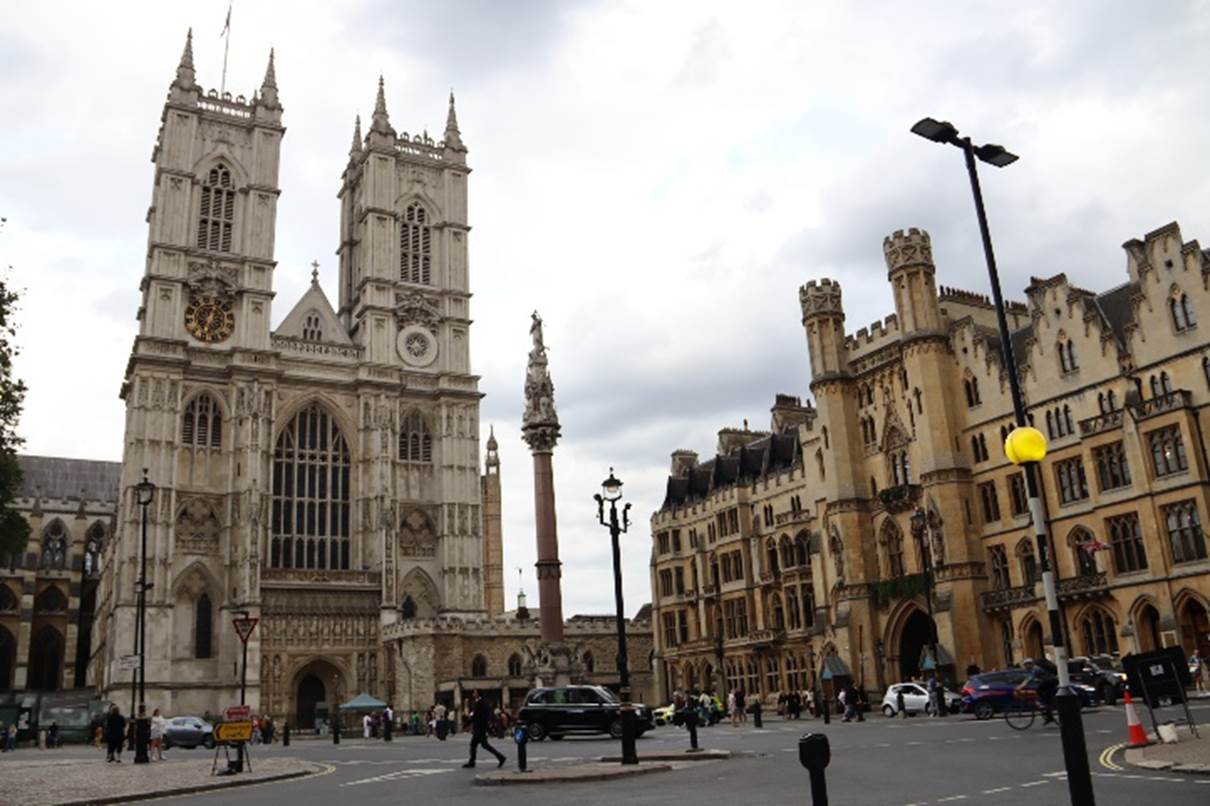
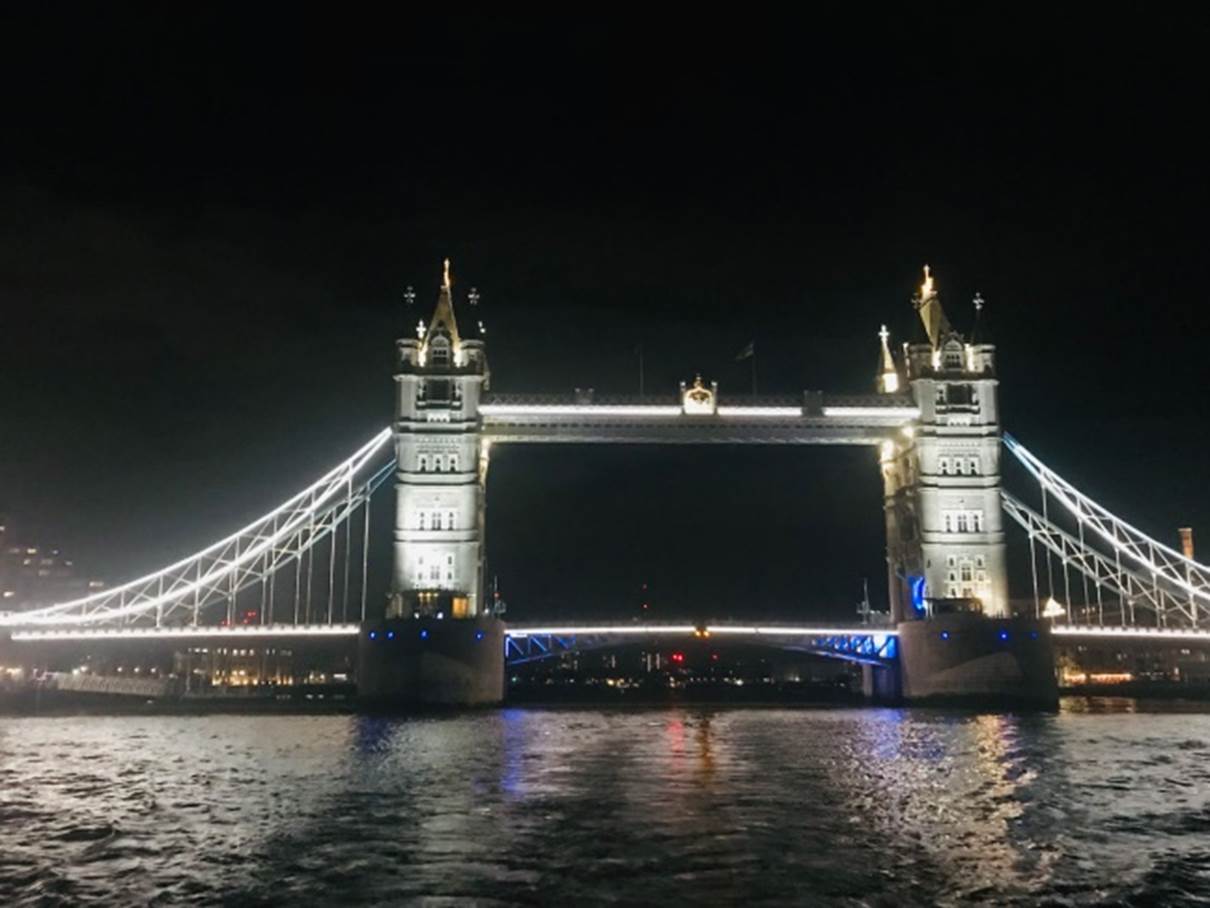
The CUFE-University of Cambridge summer academic program not only enabled the students to learn professional knowledge, expand their international perspective, and gain cross-cultural communication experience, but also allowed them to personally experience the differences between Eastern and Western cultures and their significant implications for corporate management and operations. The implementation of this summer academic program effectively advanced the internationalization of MBA student training at the Business School post-pandemic, and also helped to better fulfill the college mission of "cultivating leaders with global vision, innovative spirit, and social responsibility.”
